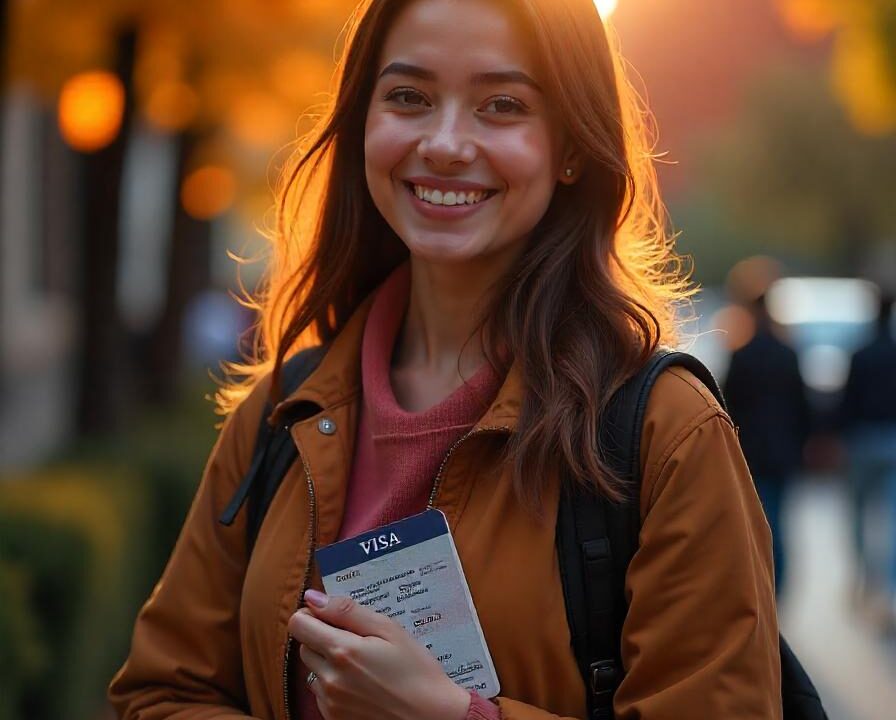The R1 visa is a non-immigrant visa in the United States designed for religious workers. Individuals who belong to a recognized religious denomination and have been members for at least two years can apply for this visa. Typically, the R1 visa allows its holders to work in a religious vocation or occupation in the U.S. for a temporary period. However, many individuals on the R1 visa may want to pursue educational opportunities while staying in the country. In this guide, we will explore the possibilities and requirements for studying while on an R1 visa.
Visa Sponsorship & Remote Jobs Free Training.
Overview of the R1 Visa
The R1 visa is intended for individuals employed by a non-profit religious organization in the U.S. The visa category covers various religious roles, such as ministers, missionaries, and religious workers. To be eligible, the applicant must prove that they are a member of a religious denomination that has a legitimate non-profit organization in the U.S. and that they intend to work for this organization.
One of the major advantages of the R1 visa is that it allows for dual intent. This means that R1 visa holders can apply for a green card while in the U.S., unlike other visa categories that require a strict intent to return to their home country. The R1 visa is typically granted for an initial period of 30 months (2.5 years) and can be extended for up to five years.
Can R1 Visa Holders Study in the U.S.?
The R1 visa does not specifically target students or individuals seeking to pursue full-time academic programs. However, studying while on an R1 visa is possible under certain conditions. Although the primary purpose of the visa is religious work, R1 visa holders can enroll in part-time or full-time educational programs, provided that their study does not interfere with their religious duties. There are no explicit restrictions in U.S. immigration law that prevent R1 visa holders from pursuing education, but balancing work and study is essential.
Part-Time vs. Full-Time Study
- Part-Time Study: R1 visa holders can easily enroll in part-time courses without much concern about violating their visa conditions. Since part-time studies typically involve fewer hours of commitment, they can be pursued alongside religious work, provided the visa holder fulfills their obligations to the religious organization.
- Full-Time Study: Full-time academic programs are more demanding and could potentially interfere with religious work. If the R1 visa holder intends to pursue a full-time degree or program, they should ensure that their academic schedule does not conflict with the duties they are required to perform under their visa. Failure to maintain active involvement in religious work could lead to visa violations.
Happy Face Academy Soft Tech Free Training.
Changing from R1 Visa to F1 Visa
In some cases, an R1 visa holder may find that pursuing full-time study becomes their primary focus. If religious work is no longer the main activity and the individual wants to commit to studying full-time, they may consider changing their visa status from an R1 visa to an F1 visa (student visa).
The F1 visa is specifically designed for full-time students enrolled in U.S. institutions. To switch from an R1 visa to an F1 visa, the individual would need to file Form I-539, Application to Extend/Change Nonimmigrant Status, with the U.S. Citizenship and Immigration Services (USCIS). They would also need to be accepted into a Student and Exchange Visitor Program (SEVP)-certified school and obtain an I-20 form from the institution to proceed with the change of status.
However, it is essential to note that once a change to an F1 visa is approved, the individual cannot work in religious occupations under the F1 visa category, as the F1 visa only allows for limited types of employment, such as on-campus work or Curricular Practical Training (CPT), related to their field of study.
Educational Opportunities for R1 Visa Dependents
R1 visa holders can bring their spouses and unmarried children under the age of 21 to the U.S. on R2 visas. While R2 visa holders cannot work in the U.S., they are allowed to study, either part-time or full-time, at any U.S. educational institution without needing to switch to an F1 visa.
This opens up significant educational opportunities for R1 visa holders’ dependents. Spouses can pursue higher education or certifications, and children can enroll in primary or secondary school, as well as higher education programs, without restriction.
Combining Religious Work with Study
Balancing religious duties and study requires careful time management. Many R1 visa holders successfully manage this by enrolling in programs that offer flexible schedules, such as online courses, evening classes, or part-time programs that accommodate their work commitments. Religious organizations are often understanding and supportive of individuals seeking to further their education, especially if the studies align with the religious worker’s vocation, such as theology, religious studies, or counseling programs.
Some R1 visa holders may also be eligible for scholarships, particularly if they are studying in religious fields. Religious organizations or educational institutions may offer grants, scholarships, or financial aid to support individuals pursuing education that enhances their religious service. It’s important to explore such opportunities, as financial support can ease the burden of combining work and study.
Happy Face Academy Premium Subscribers
Tax Considerations for R1 Visa Holders Pursuing Study
When studying in the U.S., R1 visa holders must be mindful of their tax obligations. As non-immigrant visa holders, R1 visa workers are classified as non-resident aliens for tax purposes unless they meet the substantial presence test, which could change their status to a resident alien for tax purposes.
R1 visa holders pursuing education may also qualify for certain tax benefits, such as the Lifetime Learning Credit or the American Opportunity Tax Credit, depending on their income and residency status. It’s important to consult a tax advisor to ensure proper tax filing and determine eligibility for any educational tax credits.








